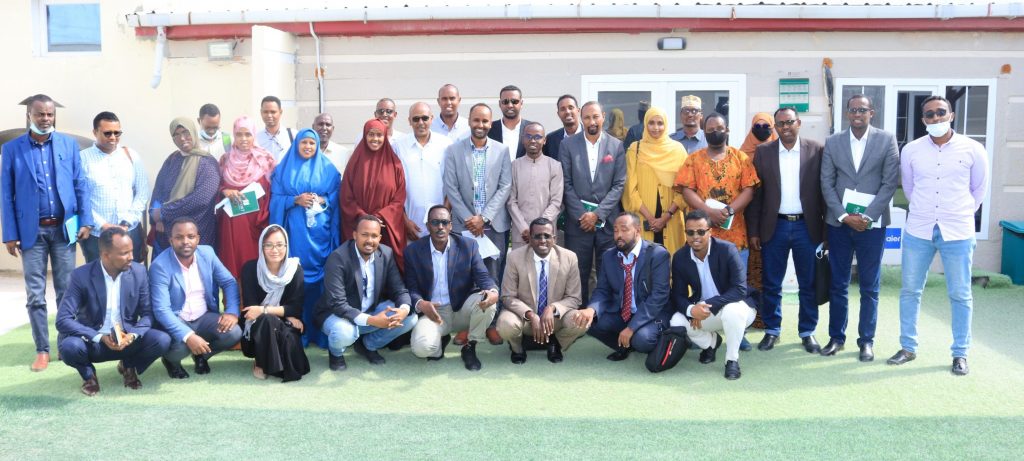Knowledge Management Central in Advancing Inclusive Local Governance in Somalia

For years, FCA has worked with its partners systematically and successfully to involve women, youth and marginalised groups in decision-making. Sharing knowledge and learning from others is central to this work.
Successful district council formation is a key milestone in building inclusive local governance structures and systems. Since 2017, four district councils have been successfully formed with active and inclusive participation of the community including women, youth and marginalized groups, with the efforts and support by FCA and its partners. The four areas include Berdale and Hudur of South West, Afmadow of Jubaland and South Galkacyo of Galmudug.
In June, FCA engaged partners, federal and local government officials and key actors to reflect on the overall progress, achievements, challenges, lessons learned and remaining priorities in inclusive local governance in Somalia.
Active dialogue and knowledge management in a recent workshop
The workshop, held in Mogadishu on 21-22 June 2021, brought together more than 45 key figures in local governance. The aim was to promote collective reflection and knowledge management and to address remaining priorities in the work towards inclusive governance particularly in the district council formation processes and the promotion of women’s political participation in Somalia.
Mr. Mustafa Adaf, the Director-General of the Ministry of Interior Affairs and Local Governance of South West State of Somalia, briefly highlighted the success stories, challenges and lessons learnt from the established district councils in South West State.
“So far four district councils have been formed in South West State with strong representation of women in the elected councils including ten women out of 21 elected council members in Diinsor, five women out of 21 in Waajid, and two out of 21 in Berdale, while Hudur has zero women representation in the district council,” Mustafa said.
FCA has been implementing various programmes promoting inclusive local governance through district council formation (DCF) and increasing women’s political participation since 2016, with the support of the EU delegation to Somalia, USAID/TIS+ and the Somalia Stability Fund.
Learning from experience
Officials from the Ministries of Interior, Federal Affairs and Reconciliation (MOIFAR) at the federal and state levels across Somalia, district administrations and councils, elders, women’s groups and networks and key stabilisation actors were actively participating in the lively discussions. The participants identified and discussed the results and successes of FCA and its partners’ interventions and contribution to promoting inclusive local governance and gender equality and the social inclusion of women, youth and marginalised groups.
The participants of the workshop also explored lessons on what has and not worked in past and ongoing interventions to foster learnings for the benefit of the other districts that are currently undertaking the district council formation in accordance with the Wadajir National Framework for Local Governance. In addition, the workshop also charted the way forward in addressing remaining priorities for effective, future programming.
The workshop’s outcomes will be collated and a publication will be compiled for internal and external knowledge management. The document will be distributed among the numerous actors working to support state-building processes in Somalia.
Advancing women’s participation
Not only is successful district council formation a historic milestone in promoting democratic process and inclusive local governance, but also in terms of women’s political participation. This is the first time in the history of South West State for women to achieve such a representation among elected council members.
“One of the lessons we learned in the previous council formations such as in Berdale and Hudur in 2017 was the need to emphasise the importance of the role of women. From such experiences, we started discussing a quota system for women’s participation in the DCF process in other districts. Once we secured that women can have meaningful participation, we proceeded with the process. So, in a nutshell, women participation can only be achieved, if the government and actors collaboratively engage the community to campaign for women in the process,” Mr. Adaf draws together lessons learned.
Text: Mohamed Dugoow and Leakhena Sieng